
Sheffield Sharks to kick off SLB Trophy campaign with two games in three days
The B. Braun Sheffield Sharks are set to face defending champions, Newcastle eagles, in the first game of their SLB Trophy campaign tonight.
They travel to Newcastle tonight before welcoming the Caledonia Gladiators at the Canon Medical Arena on Sunday.
The Sharks met the Eagles just last Friday, with the Newcastle side taking a 68-80 away win.
"Its a chance to bounce back in a new competition after losing last week," said a spokesperson for the team.
Ahead of this weekend the Sharks said: "eighty minutes of crucial basketball awaits as all eyes are on silverware - the road to Birmingham begins!"
Sharks coach, Atiba Lyons, told the Yorkshire Post: “You get those games in a season where you don’t come out with the same intensity and we were probably a bit too complacent after a good run."
The Sharks currently sit joint second in the SLB Championship table, winning seven of their 12 games so far this season.
Lyons' squad won the SLB Cup last season but were unable to qualify for the trophy.
Image Courtesy of the Sheffield Sharks
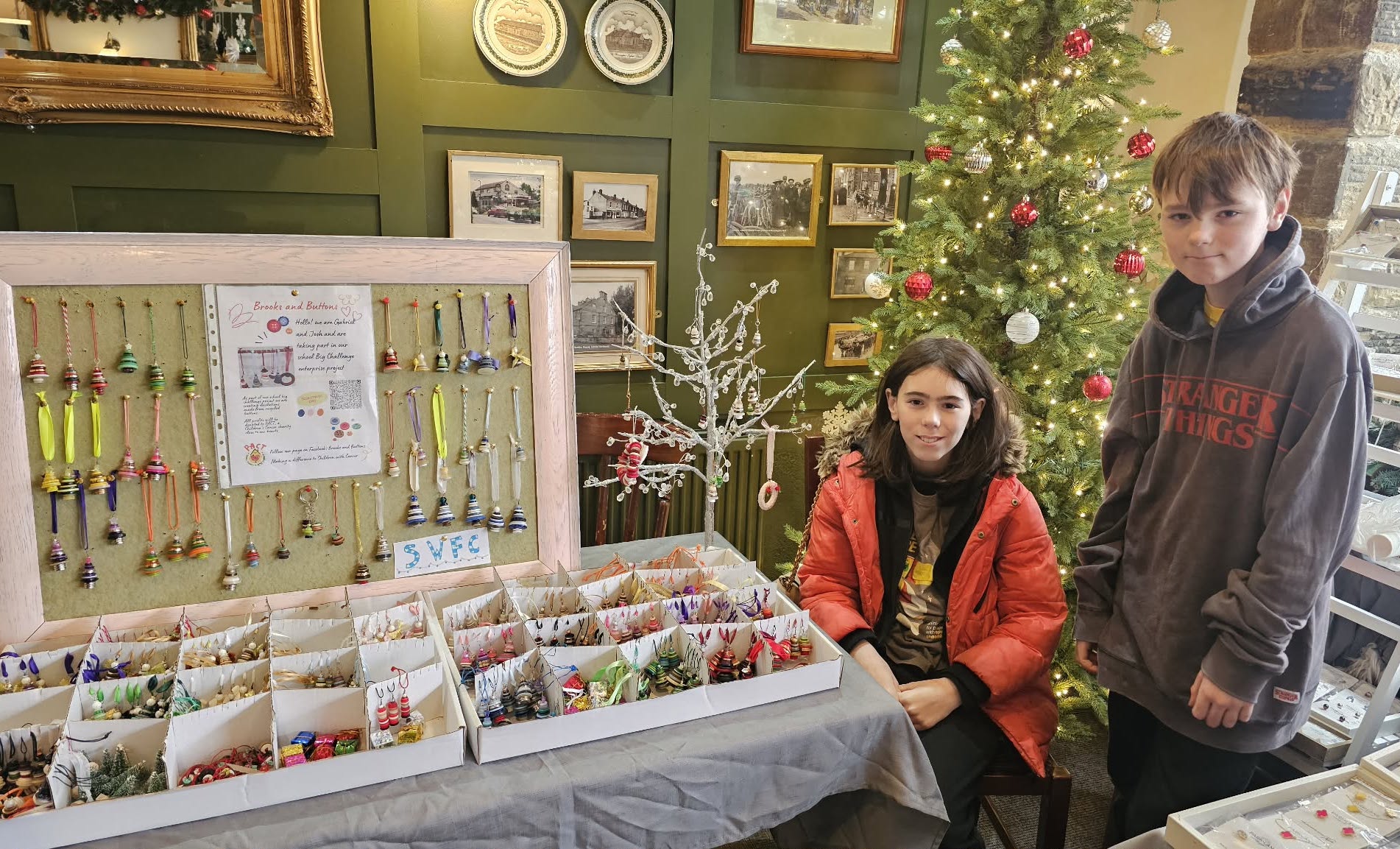
Meet the Sheffield brothers spreading joy to families in need this Christmas
Having undergone a life-saving bone marrow transplant four years ago, a 12-year-old boy has raised almost £2,000 for the children and families who will be forced to celebrate their Christmas in hospital wards.
The idea was born when Gabriel Brooks and his younger brother, Josh, 11, were encouraged to take part in an entrepreneurial challenge, along with other schoolchildren across the city.
The 'BiG Challenge' aims to get children thinking about the future by designing, making, and selling a product of their choice, while pocketing any profits made in the process.
But instead of keeping the money, Gabriel was adamant that he wanted to donate all of their profits to PACT, a South Yorkshire charity that provides support for families with children battling cancer.
The boys' mother, Maria Panayi-Brooks, 49, from Stannington, said: "Gabriel was insistent that he wanted to do it."
After much deliberation, the brothers decided that they would team up to create an array of Christmas decorations, using only up-cycled buttons and other, unwanted craft materials.
During Gabriel's time in hospital, Mrs Panayi-Brooks recalled how PACT went above and beyond to ensure that both her son and her family were looked after.
The selfless youngster was diagnosed with aplastic anaemia four years ago, before eventually receiving a transplant through the Anthony Nolan Trust.
Since then, Gabriel has learnt that his donor travelled five hours to reach the transplant centre over the Christmas period, a trip that ultimately saved his life.
"She did all that for someone she didn't know and, without it, he wouldn't have seen Christmas," said Mrs Panayi-Brooks.
Unable to leave her son's side, the grateful mother explained that PACT volunteers would bring her breakfast and lunch everyday, along with a generous sack of presents on Christmas and birthdays.
Mrs Panayi-Brooks said: "We're lucky enough to be at home this year, but that isn't the case for some kids."

The brothers have been overwhelmed by the response from their local community, after raising more than four times their original target.
"Gabriel wanted other children to have as nice a Christmas as possible," said his mother.
"I honestly thought that we'd make about £50 from family and friends and that would be it."
Gabriel and Josh will be at the Banner Cross Market from 2.00pm on Sunday 14 December and continuing to sell their products via Mrs Panayi-Brooks' Facebook page.
Click here to visit their JustGiving site.

“Accessible fun for everyone”: The sensory bus helping bring smiles to children’s faces
A husband and wife duo's sensory bus service has been embraced by families across South Yorkshire, as young people and adults have found "sanctuary" during busy events this Christmas.
Caleb and Tabitha Goodison, co-founders and owners of Rotherham-based company Goodysphere, converted an empty Ford Transit into a portable, immersive rainforest-themed sensory space in August 2025.

The Goodysphere sensory bus, Photo Credits: Caleb and Tabitha Goodison
The duo's mission is inspired by Caleb's younger sister, Anya, who sadly passed away.
Anya was neurodivergent, and experienced challenges accessing the world around her.
Mr Goodison, bus driver and Inclusive Fun Assistant at Goodysphere, said: "I do this in memory of Anya and to help children like her.
"Wind was one of her fears so a safe space that could have come to her would have been beneficial and that's part of the reason why Goodysphere was founded."
Since their launch in October 2025, the couple has been travelling across South Yorkshire, offering a calming, inclusive experience for anyone who needs a "peaceful escape" to decompress and relax in overstimulating environments.
The purpose-built bus includes a fibre optic curtain, a sequin board, infinity mirror, sensory swing, bubble tubes and glowing vines.

The rainforest interior of Goodysphere's Sensory Bus, Photo Credits: Caleb and Tabitha Goodison
All of these features were designed to help people regulate during times of stress and anxiety by engaging with nature-based sight, hearing and touch sensations.
Goodysphere was part of Rotherham's Christmas Lights Switch-On and Magna Science Adventure's Christmas Fayre this year.
Its presence reassured families there was a soothing, quiet space for their children to take a sensory break if needed.
Mrs Goodison said: "It's incredible to see the smiles on children's faces when they feel like they're seen and they belong when they're regulated and having fun. It makes it so worth it for us, it's so rewarding."
She added: "It's all about making people realise everybody has their own needs and understanding it is okay to be different."
The pair has also designed and created their own mascot, Goody the Gecko, who has an additional need. They hope Goody can help children who need extra support feel seen and represented.
Caleb and Tabitha are excited for the future and have big dreams for their business. They hope to have depots across the country, to reach and support as many children as they can.
The Goodysphere Sensory Bus is available to hire for events, school visits and private sessions.
More information about the company can be found on the Goodysphere website.

Breweries unite to launch exclusive trans-Pennine pint in Sheffield pub
A Sheffield pub has launched a pint made as a collaboration between two independent breweries from Sheffield and Manchester.
‘The Beautiful North’ ale was unveiled at The Hallamshire House on 9 December, in partnership with Kelham Island Brewery and Manchester-based Blackjack Brew Company.

The limited edition ale is named as a nod to the band, The Beautiful South, who have deep ties to the north of England.
It is presented as a trans-Pennine collaboration that brings together two cities with strong cultural links.
Jack Williams, 23, Sales Representative for Blackjack, said: “It’s something that’s so important for independent breweries, It’s about building a community and showcasing our beers in areas we don’t usually get to as much."
The launch took place at the Hallamshire House in Crookesmore, where Doug Simpson, 32, is the general manager.
He said: “We’re very excited to be the first pub to serve The Beautiful North.”
With rising staff costs and bills, pubs rely on the Christmas period to draw in big crowds.
Mr Simpson talked of the importance of events like this, and advertised the pub’s calendar for their biggest month of the year below:
The collaboration involved the Kelham Island team touring the Blackjack Brewery in the Northern Quarter of Manchester, and exchanging ideas and techniques used to create their unique products.
The Beautiful North is described as a fruit bowl of flavours, bursting with fresh citrus, mango and peach.
It is featured alongside other Blackjack beers in the Hallamshire House including Squalor, a dark lager and Shambles, an American amber.
Local patron and ale enthusiast, Sam Jenkins, 24, said the ale was “exactly the kind of thing he was looking for after work."
Following the launch at the Hallamshire House, there was a sister event at the Smithfield in Manchester on Thursday 11 December.
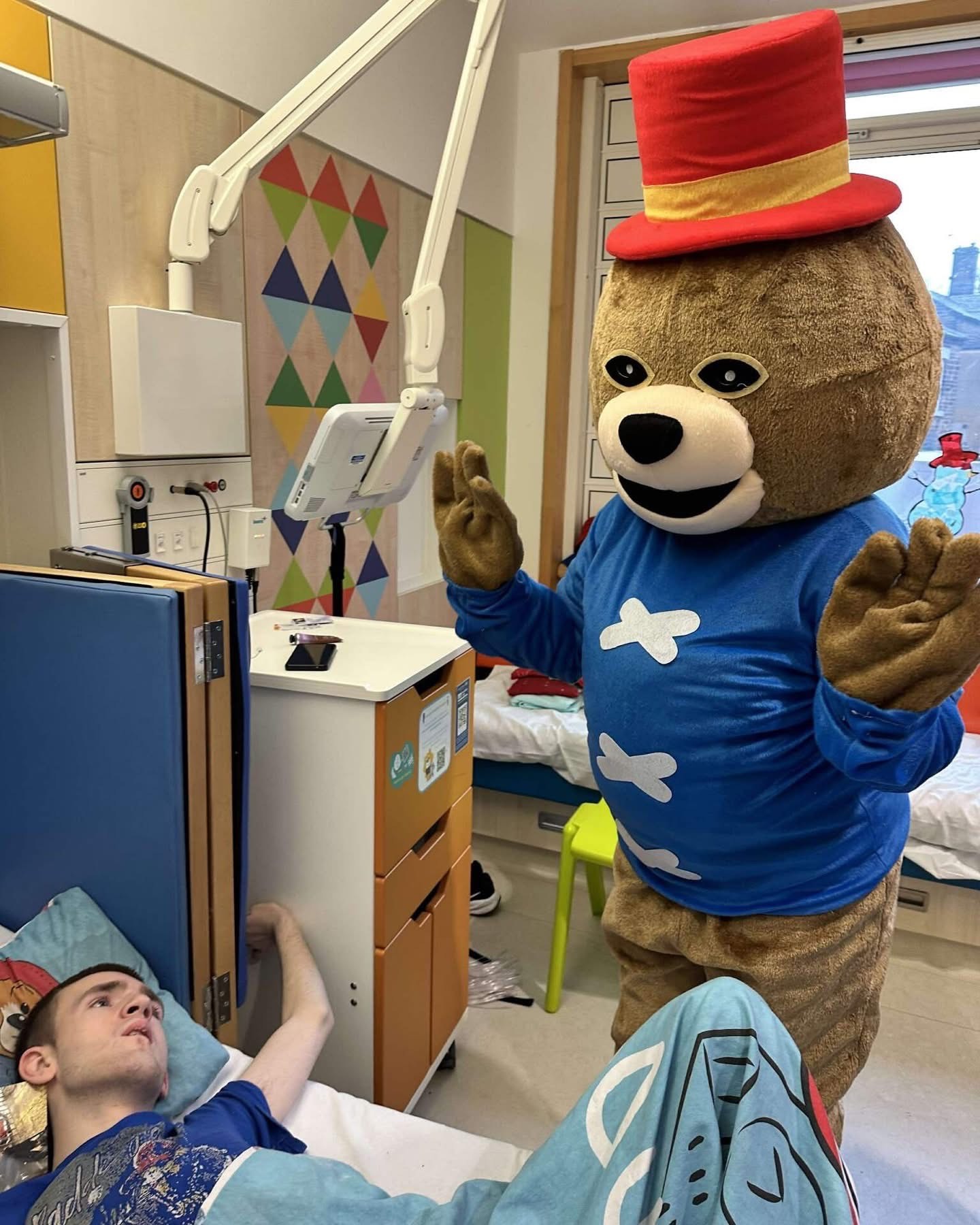
Sheffield family let down by ‘horror show’ mascot made for disabled son
A Sheffield mum is appealing for help with a mascot outfit that she had commissioned to cheer up her disabled son this Christmas.
Alison Orbell, 47, ordered a Paddington Bear mascot to be made for her 16-year-old son, Max, but after weeks of waiting, the result was far from what she had hoped for.
She said: "His favourite two things in the world are Paddington and the Gruffalo. Everything he has, everything about him, is Paddington."
Max is the owner of Paddington blankets, toys, and even clothes. The character brings him comfort at a time that is incredibly difficult for him and his family.
Max has been in and out of Sheffield Children's Hospital for long periods this year due to his deteriorating health.
His family often hire Paddington Bear mascots to come and visit him but, this time, they wanted to go a step further and get a costume of their own specially made.
But Mrs Orbell said Max, who is usually delighted by visits from his favourite character, was visibly confused and underwhelmed at the sight of the mascot costume.
She said the mascot was terrifying and inaccurate, from the blacked-out pupils to the off-putting red top hat.
Mrs Orbell said Max looked at her as if to say: "This is not Paddington."
In the meantime, the family has resorted to hiring mascots for quick visits again to light up Max's day where their own costume fails to do so.
They are now asking the local community for help, and are looking for a costume designer, seamstress or anyone with creative flair who can help fix up or redesign the costume.
Mrs Orbell is requesting that anyone able to help gets in contact with her.

Hosepipe ban affecting more than five million lifted across Yorkshire
A temporary hosepipe ban was lifted across Yorkshire this week, after the region endured the hottest summer on record.
The restrictions were introduced on 11 July, following the driest spring in 132 years, and removed on Wednesday.
During the summer months, reservoir levels across Yorkshire reached lows of 30.6% and without Yorkshire Water's drought management plan it is estimated levels could have dropped as low as 17.6%.
Reservoir levels have now surged to 91.6% and total available water resources are above the average, 85.1 per cent, for this time of the year.
Ruby, a member of University of Sheffield’s Allotment Society, said: "We were affected quite badly by the hosepipe ban, a lot of our produce was lost due to the drought as we went through the water we'd collected in the water butts very quickly.
"We haven't had a problem for a few months now since it started raining more consistently."
The Met Office announced northern England has experienced the fifth wettest November since 1836, with rainfall 75% above average in the midlands.
The hosepipe ban helped save 3.1 billion litres of water, which is equivalent to 33 days of Sheffield's average usage.
Maria Clark, 81, a local resident, said: "My husband and I struggled quite a bit. Due to our old age our mobility is quite limited and we struggled a lot to water our garden without a hose.
"We were both really happy to see the restriction lifted, it will make our lives much easier."
Yorkshire Water is continuing its efforts to manage water resources by potentially building a new reservoir at a location to be confirmed, and maintaining its ongoing installation of new boreholes and storage reservoirs.

Charity’s desperate campaign to ‘restore dignity drop by drop’ for homeless people
A charity in Sheffield is running out of time in its campaign to improve living conditions for formerly homeless people.
Emmaus Sheffield focuses on helping individuals break the cycle of homelessness by offering the necessary tools to change their lives.
This comes in the form of food, clothes, support, or housing found above their charity shop.
Emmaus' current focus is on improving the conditions of their showers, and they are hoping to start renovations in the new year.
Most of their funding comes from sales made at their shop, which itself employs formerly homeless people.
The shop sells everything from second-hand furniture and clothes to books and vinyls.
Charley Fedorenko, Emmaus' Marketing and Business Development Manager, has said the income from the shop is not sufficient.
To help, they have launched a fundraising campaign which ends in just 12 days.
Only 5% of the overall goal has been reached.
Emmaus' housing project was first started in 2008, with the shop's grade II building turned into ensuite rooms.
Charley Fedorenko, Marketing and Business Development Manager at Emmaus Sheffield, said that the charity is doing everything it can to give safe and clean showers to these formerly homeless people.
She said: "We try to be self sufficient. Unfortunately we're not at the moment. We rely on a lot of funding to help, which means we don't have the money for any extra repairs."
There are currently 18 formerly homeless people living at Emmaus Sheffield, and the charity is using a different approach to tackle homelessness.
Charley Fedorenko said: "Everybody you see here is a homeless person that's now working with us.
"They work on the tills, they drive the van, collecting the furniture, they work in the workshop, making items."
The charity works closely with counsellors to provide free therapy services, and provides specialist training for any interested member.
She said: "People have gotten GCSEs here, one guy's got a degree before, we do woodworking qualifications as well.
"It's more than just a bowl of soup and a bed. It's the full package that somebody needs to get back on track."
In the future, Emmaus Sheffield hopes to expand their store to include more living quarters through a partnership with Crisis, another homelessness charity.
Ms Fedorenko added: "Emmaus is a charity that supports people who found themselves homeless, and the main aim of our support is to help them break that cycle of homelessness and get them back out into society and move their lives on."

New flu strain “completely knocked me off my feet,” says Woodhouse woman
Sheffield Wire has heard from two people who experienced what they believe to be the new strain of 'super flu' which has left medical services dealing with high levels of demand.
Sarah Lou, 32, is shown before and after she caught the most recent strain of the flu.
Sarah Lou, pictured above, is a full-time carer, and said she "just had to get on with it" as there were no GP appointments available this week.
She is one of many suffering from the flu virus, which has broken records for infection rates across the country.
Dr David Crichton, Chief Medical Officer at NHS South Yorkshire, has said hospitals in Sheffield are now "under extreme pressure."
Ms Lou described how she has been doing COVID tests all week and wearing full PPE before walking into people's homes.
"I've had to cancel plans and try the doctors again," said Ms Lou. "I've been coughing up blood."
Shannon Jones, 28, from Woodhouse in south Sheffield, claimed she was suffering with the "really awful" flu for about a week. She has only just recovered.

Ms Jones said despite the fact that she was "completely knocked [her] off her feet for a week" she avoided seeking medical help because she "didn't want to bother the doctors."
She said it started with a persistent cough and eventually led to her losing her voice.
Thanks to the resilient strain, Ms Jones had to miss a concert she had planned for her dad's birthday.
"I could hear [my lungs] rattling when I was breathing," she said. "This went on for another week after other symptoms were gone. I had to sleep upright because I could feel the phlegm in my chest."

Hospice garden transformed into festive wonderland, raising £30,000 for patient care
A new winter wonderland in Rotherham is lighting up the dark nights, raising vital funds and showing that hospices can be places of joy.
From 6 to 21 December, the garden of Rotherham Hospice will be full of lights, glittery reindeer, dancing elves, inflatable snowmen and a grotto for children to see Santa.
Emily Dowd, Marketing and Communications Manager said: “The purpose of it was to try and bring more people into the hospice and to see it's not a place of sadness all the time and there can be joy.
“It has brought new people in and I think it's made a massive difference breaking the stigma of who we are and what we do.”
The Winter Garden is a paid public event, but the families visiting patients in the hospice have free access to the garden and to the grotto.
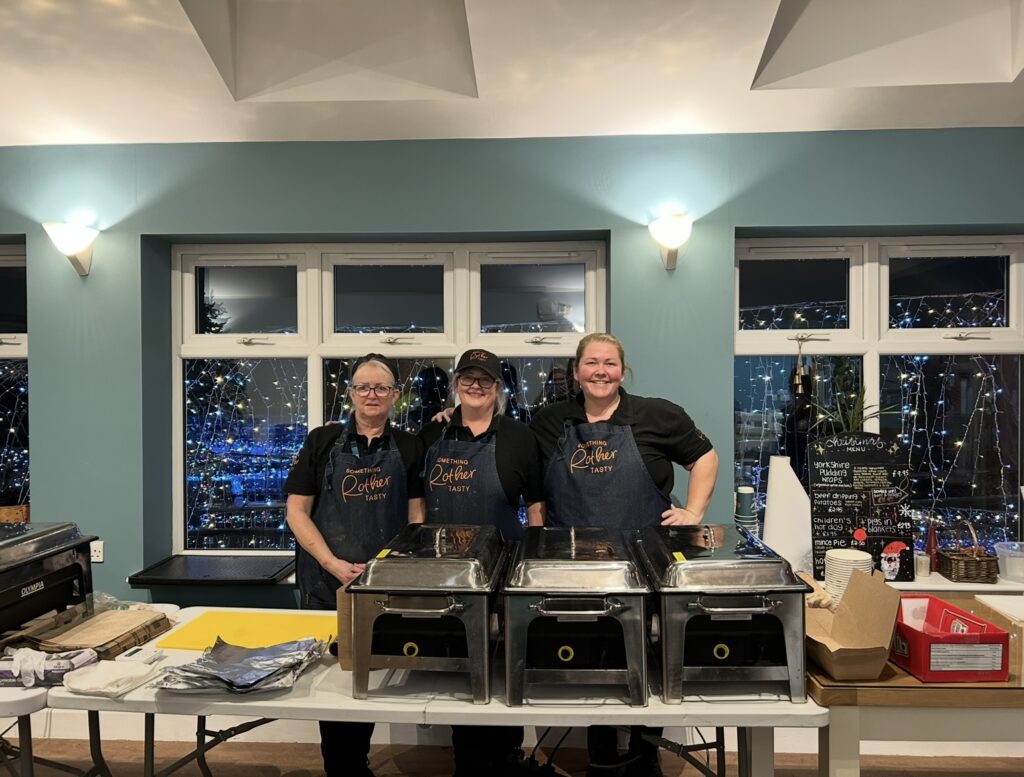
Before she ran off to dial Santa into a podcast from the grotto, Paula Figueira, Fundraising Events Manager said: “It was a concept of the Chief Executive, Mat Cottle-Shaw. He’s a very visual person and has brought it to life.
“He pulled us into a meeting and said ‘how do you fancy this?’. We were like ‘oh that's really quick!’
“It is a work in progress, we’ve got snags and things like that,” she said.
A tip off from an elf revealed one of the “snags” was the big inflatable Santa and the grinch coming down in Storm Bram this week.
But Ms Dowd said: “When you get to the event and get to see kids enjoying it and families overwhelmed by it, then you realise what it's all for.”
Ms Dowd said at their private event for corporate supporters, a girl from their children’s bereavement service opened the gardens.
“She absolutely loved it and loved Santa.”

Ms Dowd was optimistic this could become an important fundraising event for the hospice.
Rotherham Hospice is funded 37% through the NHS, with the other £6.6m a year coming through fundraising.
She said: “Events like this bring in a massive income. I think we've got over 2300 people booked on to come and see the gardens and £30,000 so raised so far.
“That's all going to go into the hospice and all our services.

“The Inpatient Unit where we have 14 beds to care for patients in the hospice, hospice at home goes out to homes and cares for patients there," she said.
“Last year we saw 17000 patients across Rotherham so all this money will go into keeping those services going.”
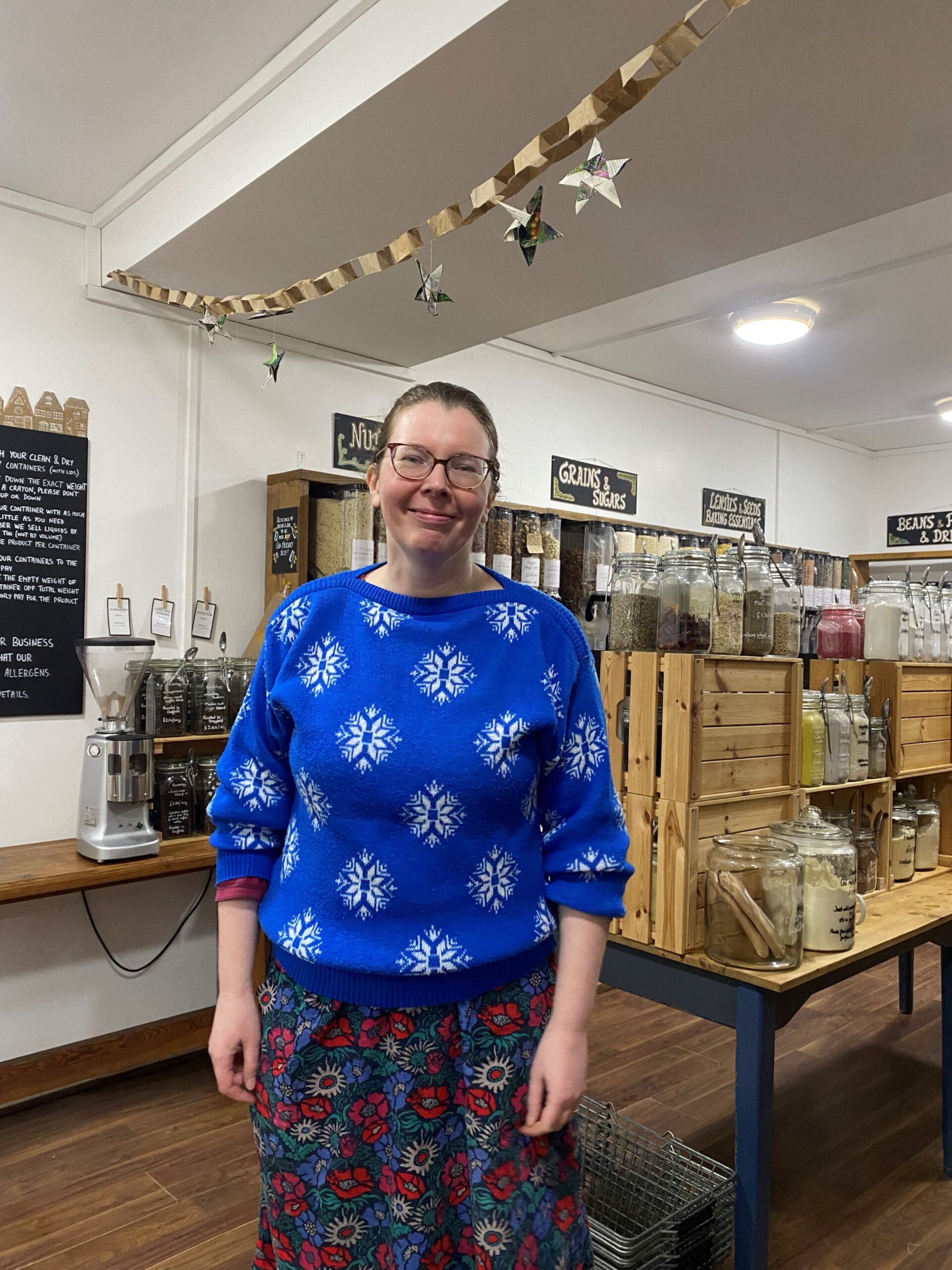
Zero waste shop encourages “little changes” to promote ethical values in the Christmas period
A zero waste shop is encouraging people to make small changes and keep gift-giving ethical and sustainable this festive period.
Kirsty Burnet was inspired to open Unwrapped in Crookes after seeing another zero waste shop thriving during a time of concern about the environment and plastic waste.
Ms Burnet shares these values with her customers now, and said that starting conversations is one of the biggest ways people learn about sustainability.
She said: "I think it's important to be a place where people can get ideas, where someone might see something that inspires them."
One thing which has inspired her customers is the homemade Christmas decorations that adorn the shop, including star ornaments made from old magazines.
It's just one recommendation the shop has for making this holiday period more ethical and less wasteful, with Ms Burnet keen to start conversations about second-hand shopping and small businesses as valid alternatives to big brands.
She said: "If someone says 'Oh I like your Christmas jumper,' I tell them it is from St. Luke's, the charity shop up the road, as they have a big rail out at this time of year."
Unwrapped sells Christmas baking ingredients which customers can buy in the exact amounts needed for recipes, meaning that there won't be "a lonely bag of currants sitting at the back of the cupboard" going to waste.
Ms Burnet also said that making changes with gift-wrapping can make a big difference to the amount of landfill generated at Christmas.
She said: "Little changes, like using newspaper or recycled wrapping paper, and using twine or ribbon that can be reused, can be sustainable."
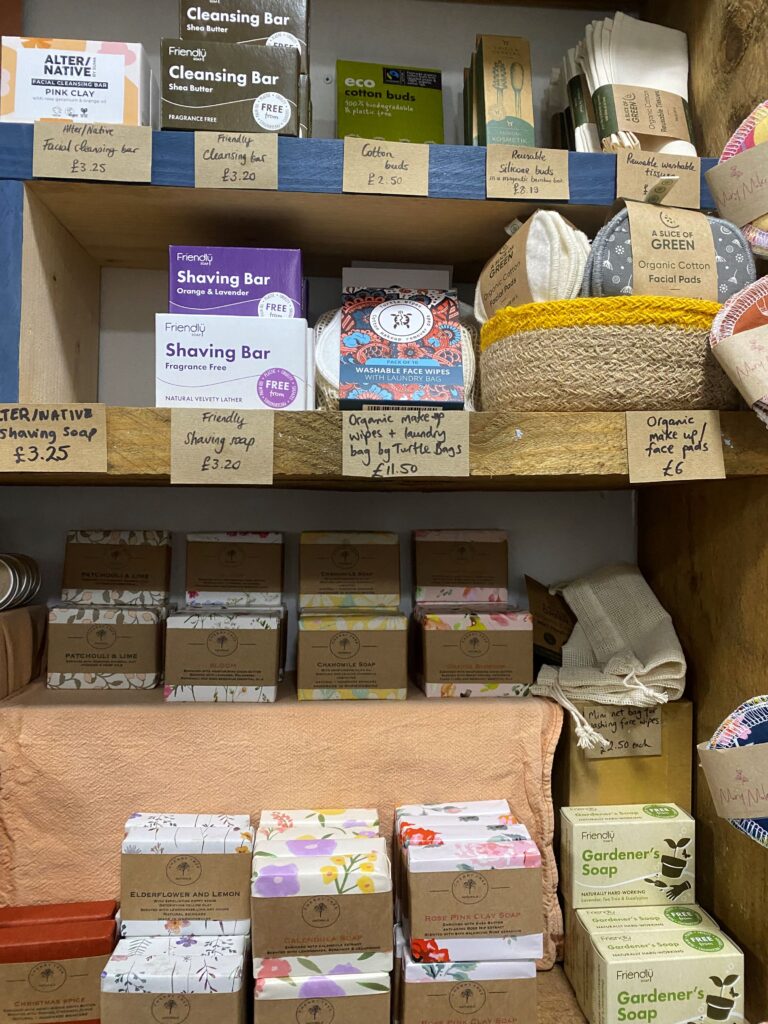
Ms Burnet also recommended reusable gifts, such as metal water bottles and sporks for office packed lunches.
The shop also sells items from other ethical small businesses in the area, such as handmade soaps.
Ms Burnet is keen that people know they do not have to be perfect, or make huge changes to access zero waste shopping.
She said: "We try to be welcoming and non-judgmental, you might just buy your spices here, but together we are making a big difference."

“We just have to keep doing our best”: B. Braun Sheffield Hatters advance to finals despite illnesses and injuries
The basketball team makes it to the final of the Betty Codona Trophy, but several players are out due to injuries, illnesses and a possible concussion.
Hatters' number 5, Marina Fernandez Pardo, seriously injured her knee during the match against Manchester Basketball, and will be out for the rest of the season.
"It's sports, you get used to it all the time. I thought people did really well when we had one of our key players missing," said Head Coach, Vanessa Ellis. "We just have to keep doing our best and hopefully getting the wins."
"It has been a good two weeks, despite having injuries and illnesses," she said.
The Sheffield Basketball team recently defeated the Oakland Wolves 81-77, securing their place in the final of the Betty Codona Trophy, for the first time since its rebranding.
Both teams were semi-finalists in this competition last season, with Sheffield exiting at this stage and Oaklands losing to the Caledonia Gladiators in the final, but this time the Hatters have come out on top to reach the final.
The trophy was renamed in 2022 after Betty Codona OBE, a pioneer of women's basketball who founded the Sheffield Hatters in 1961, so a victory in the final would be a memorable achievement for the Sheffield team.
On Saturday, Oaklands Wolves got out to a strong start, jumping out to a 10-point lead in the first seven minutes, but shortly into the second quarter Sheffield snatched the lead, which remained for the rest of the game.
For the Hatters, Megan Mullings, who was player of the match, led the way with a 25-point, eight-rebound outing on 60% shooting, and Shauna Harrison contributed 19 of her own.
Hatters player, Emma Gandini, said: "It was a really good team win. They (Oakland) did stick with us a little bit, but I think we stuck out to the end and played together as a team, followed the scout and yeah enjoyed it while we did it."
Sheffield will face the Caledonia Gladiators in the final in February.
B. Braun Sheffield Hatters are competing against Exeter Rebels tomorrow in the Super League Basketball Championships.
The match is at the Essex Sports Arena, an away game for the Sheffield team.
When discussing the difference between a home and away game, Ms Ellis said: "For some of our games we're travelling for four or five hours before we play so the home game, the home support, the atmosphere at home is really good. I think it does give you an advantage."
Both teams have won three matches and lost one, so all is to play for on Saturday.
The Hatters next home game is on the 17 December against Nottingham Wildcats.

Bluebell Wood’s first-ever Christmas Jumper Day brings festive cheer to Doncaster Racecourse
Written by Jena Smith, William Ormes Roder and Owen Roberts
A charity that supports children with terminal illnesses and their families is anticipating a "humongous" day of raising money and its profile.
Bluebell Wood Children's Hospice will host its first Christmas Jumper Day at Doncaster Races today.
The charity is running a Christmas jumper competition, a silent auction and other games and events to raise money for the hospice.
Christmas tunes will will play on repeat with ‘Santa's little helpers’ giving away tickets throughout the event.
Events fundraiser, Beth Lyons, said the event was very important to the charity.
She said: "We’re really really excited for it, we thought it’d be a brilliant way to raise funds for the hospice but also get everyone in the Christmas spirit and have a good day out."
Doncaster Racecourse has run a Christmas jumper days for years, but this is the first time it has been sponsored by Bluebell Wood.
CEO Heidi Hawkins said: "We're so thrilled to be here today at Doncaster races, the exposure for us is amazing."
The racecourse has displayed information on Bluebell Wood to the 3,000 punters who will visit the racecourse later today, and in front of ITV and Sky TV cameras.
Ms Hawkins said: "Our engagement with our local community is absolutely everything to us. Today goes beyond even that because this is national television, the exposure, people seeing our brand seeing who we are."

The charity has to raise £6.7m this year, and as only 17% of funding comes from the government, the charity has to raise significant other donations to survive.
Events marketer Becky Hopegood (pictured in the main image) said: "Being able to do events like this to bring money into the hospice is humongous, we're really grateful to everyone who attends and supports us."
Bluebell Wood is the only children's hospice that provides support across South Yorkshire, North Nottinghamshire, North Lincolnshire and North Derbyshire.
The charity has supported children and families since 1998, supporting hundreds across the region with alternative hospice care.
The first race is expected to start at 11.40am, with seven more races until 3.08pm.
For more information on Bluebell Wood, and ways to donate or get in touch, visit here Donate or make a regular gift | Bluebell Wood Children's Hospice
